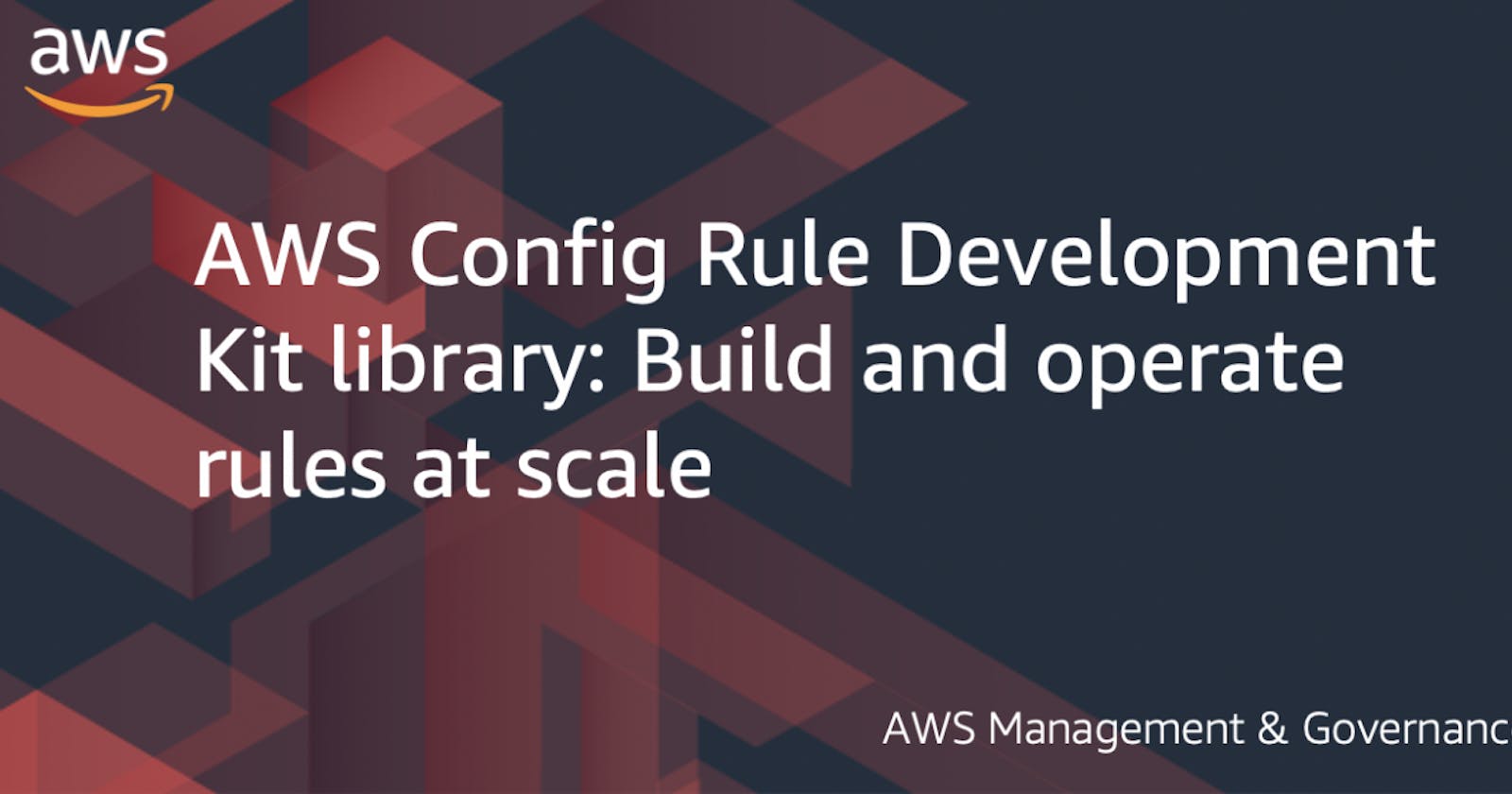Taming the Configuration Beast: Demystifying AWS RDK and RDK-Lib
Unleashing the Power of AWS RDK and RDK-Lib: A Comprehensive Guide
Introduction
Managing the ever-growing complexity of cloud infrastructure is a challenge. One crucial aspect is ensuring compliance with security and governance best practices. This is where AWS Config comes in, offering a service to monitor and evaluate your resources against desired configurations. But even Config has its limitations, especially when you need custom rules tailored to your specific needs. This is where the AWS Rule Development Kit (RDK) and its accompanying library, RDK-Lib, step in to streamline the process of rule creation and enforcement.
Amazon Web Services (AWS) has long been at the forefront of providing powerful and scalable cloud services. As organizations continue to leverage AWS to build and deploy their applications, the need for effective management and governance becomes paramount.
What is AWS RDK?
AWS RDK, or Rule Development Kit, is a set of tools and utilities designed to simplify the creation, deployment, and management of AWS Config rules. AWS Config rules help organizations ensure compliance with best practices, security policies, and regulatory requirements by continuously monitoring and assessing AWS resources.
Key Components of AWS RDK
Rules: These are the core building blocks of AWS Config. Rules define the conditions that AWS Config monitors for compliance. RDK facilitates the creation and deployment of these rules.
Custom Resources: RDK enables the creation of custom resources, allowing users to extend the capabilities of AWS Config by defining their own resources and corresponding compliance checks.
Remediations: In addition to assessing compliance, AWS RDK allows for the creation of remediations to automatically correct non-compliant resources, ensuring a proactive approach to maintaining compliance.
What is RDK-Lib?
RDK-Lib, the Rule Development Kit Library, is a Python library that provides a set of abstractions and utilities to simplify the process of developing AWS Config rules. It abstracts away many of the complexities involved in rule development, allowing developers to focus on defining compliance conditions and actions.
Key Features of RDK-Lib
Abstractions for AWS Config Rule Development: RDK-Lib provides high-level abstractions that simplify the creation of AWS Config rules. Developers can use these abstractions to define the logic for compliance checks.
Testing Framework: RDK-Lib includes a testing framework that allows developers to write unit tests for their rules. This ensures the reliability and effectiveness of the rules before deployment.
Easy Integration with AWS Services: RDK-Lib seamlessly integrates with other AWS services, making it easy to incorporate AWS Config rules into existing workflows and architectures.
Why RDK and RDK-Lib?
Traditionally, building custom Config rules involved writing boilerplate code, dealing with complex testing, and managing deployments. This could be time-consuming, error-prone, and difficult to maintain at scale. RDK and RDK-Lib address these pain points by providing:
Simplified Rule Development: RDK offers a command-line interface and scripts to streamline the creation, testing, and deployment of custom rules. You can focus on the core compliance logic without getting bogged down in repetitive tasks.
Boilerplate Code Elimination: RDK-Lib, an open-source Python library, acts as a pre-built layer for your Lambda functions running custom rules. It handles common tasks like interacting with Config, retrieving AWS resource data, and formatting evaluation results. This reduces development time and simplifies rule maintenance.
Scalability and Reliability: By leveraging Lambda and Serverless Application Repository, RDK and RDK-Lib enable scalable and reliable rule deployments. No need to worry about server provisioning or scaling issues.
Use Cases for AWS RDK and RDK-Lib
1. Security and Compliance
AWS RDK and RDK-Lib are particularly valuable in ensuring the security and compliance of AWS resources. By defining and deploying custom rules, organizations can enforce security best practices and compliance standards specific to their industry.
# Example RDK-Lib code for a security compliance rule
from rdklib import ComplianceType, Evaluation, ComplianceResourceType
def evaluate_compliance(configuration_item, rule_parameters):
if configuration_item['is_secure']:
return Evaluation(ComplianceType.COMPLIANT, annotation="Resource is secure.")
else:
return Evaluation(ComplianceType.NON_COMPLIANT, annotation="Resource is not secure.")
2. Cost Optimization
Developers can use AWS RDK to create rules that help optimize costs by identifying underutilized resources, recommending reserved instances, or enforcing budgetary constraints.
# Example RDK-Lib code for a cost optimization rule
from rdklib import ComplianceType, Evaluation, ComplianceResourceType
def evaluate_compliance(configuration_item, rule_parameters):
if configuration_item['usage'] < rule_parameters['threshold']:
return Evaluation(ComplianceType.NON_COMPLIANT, annotation="Resource is underutilized.")
else:
return Evaluation(ComplianceType.COMPLIANT, annotation="Resource is optimally utilized.")
3. Operational Best Practices
RDK and RDK-Lib can be used to define rules that enforce operational best practices, such as tagging resources for better management and organization.
# Example RDK-Lib code for an operational best practices rule
from rdklib import ComplianceType, Evaluation, ComplianceResourceType
def evaluate_compliance(configuration_item, rule_parameters):
if 'Environment' not in configuration_item['tags']:
return Evaluation(ComplianceType.NON_COMPLIANT, annotation="Resource is missing required tag.")
else:
return Evaluation(ComplianceType.COMPLIANT, annotation="Resource is properly tagged.")
Summary
While RDK and RDK-Lib automate much of the custom rule development process, they offer more than just efficiency. They empower you to build and enforce configurations that align with your organization's unique security and compliance needs, going beyond what standardized managed rules can provide.
AWS RDK and RDK-Lib empower organizations to take control of their AWS resources by simplifying the development and deployment of AWS Config rules. Whether it's ensuring security and compliance, optimizing costs, or enforcing operational best practices, RDK and RDK-Lib provide a flexible and powerful framework for rule development. By leveraging these tools, organizations can enhance their governance and maintain a secure, compliant, and cost-efficient AWS environment.
Ready to explore the power of RDK and RDK-Lib? Head over to the official GitHub repositories:

